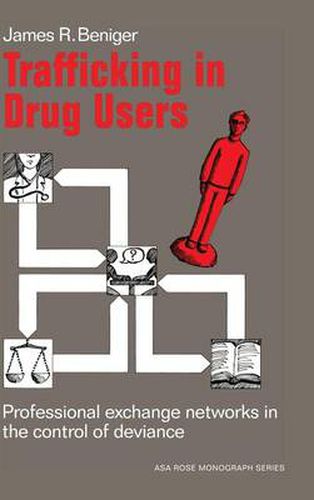Readings Newsletter
Become a Readings Member to make your shopping experience even easier.
Sign in or sign up for free!
You’re not far away from qualifying for FREE standard shipping within Australia
You’ve qualified for FREE standard shipping within Australia
The cart is loading…






Control of illegal drug use and abuse requires an elaborate network of organizations and professions: medical, legal, political, educational, and welfare. This book explores the way in which these diverse sectors coordinate the control of deviance in a complex society and how they respond to a sudden widespread increase in deviance spanning many institutional and professional domains. The latter of these concerns, James Beniger argues, affords us a unique insight into the more general question of societal control. He takes as an example of this phenomenon the dramatic appearance of the ‘drug problem’ in America in the Vietnam war era of the late 1960s and early 1970s. Exploiting this as an approximation of an experimentally induced disruption of society, Professor Beniger examines its impact on the interorganizational and professional networks that together constitute a system for the control of a social deviance. His study produces the startling finding that as various rewards - raises in salary, promotions, government funds, media exposure, enhanced status - accrued to the new social problem, many drug specialists gained increasing stake in the very deviance they were professionally charged to control. Societal control of the drug problem became transformed - quite literally - into a trafficking by professionals in young drug users.
$9.00 standard shipping within Australia
FREE standard shipping within Australia for orders over $100.00
Express & International shipping calculated at checkout
Control of illegal drug use and abuse requires an elaborate network of organizations and professions: medical, legal, political, educational, and welfare. This book explores the way in which these diverse sectors coordinate the control of deviance in a complex society and how they respond to a sudden widespread increase in deviance spanning many institutional and professional domains. The latter of these concerns, James Beniger argues, affords us a unique insight into the more general question of societal control. He takes as an example of this phenomenon the dramatic appearance of the ‘drug problem’ in America in the Vietnam war era of the late 1960s and early 1970s. Exploiting this as an approximation of an experimentally induced disruption of society, Professor Beniger examines its impact on the interorganizational and professional networks that together constitute a system for the control of a social deviance. His study produces the startling finding that as various rewards - raises in salary, promotions, government funds, media exposure, enhanced status - accrued to the new social problem, many drug specialists gained increasing stake in the very deviance they were professionally charged to control. Societal control of the drug problem became transformed - quite literally - into a trafficking by professionals in young drug users.